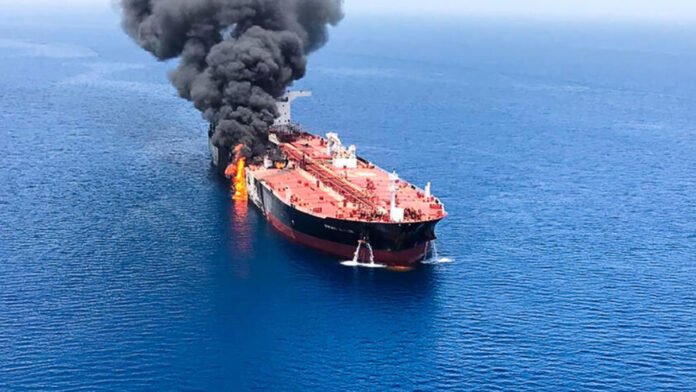In a concerning resurgence of maritime violence, a Liberian-flagged, Greek-owned cargo vessel named Magic Seas was attacked in the Red Sea, sparking fresh fears over the region’s fragile security environment. The incident, which occurred on Sunday approximately 94 kilometers southwest of the Yemeni port of Hodeidah, marks the first such attack in the vital shipping corridor since April.
According to the United Kingdom Maritime Trade Operations (UKMTO), the Magic Seas was targeted by multiple small boats that opened fire with small arms and launched rocket-propelled grenades. The assault resulted in the vessel catching fire and taking on water, forcing the crew to abandon ship. Fortunately, all crew members were rescued by a passing merchant vessel and are reported to be safe and unharmed.
British private maritime security firm Ambrey added further detail, reporting that the ship was also struck by four unmanned surface vehicles (USVs), with two hitting the port side and damaging the vessel’s cargo. While no group has officially claimed responsibility for the assault, Ambrey noted that the method of attack closely aligns with the “established Houthi target profile.” Between November 2023 and January 2025, the Houthi movement launched over 100 attacks on commercial vessels in the Red Sea, sinking two ships, seizing another, and killing at least four seafarers. These attacks significantly disrupted global shipping and forced many companies to reroute vessels away from the Red Sea and Bab el-Mandeb Strait, a critical chokepoint for international trade.
Following a temporary ceasefire between Israel and Hamas in January, the Houthis paused their maritime operations. However, hostilities escalated once more in mid-March when the United States launched airstrikes on Houthi positions. A subsequent ceasefire was agreed upon in May, and no vessel attacks were reported until the latest Magic Seas incident. The Houthis, however, have continued occasional missile attacks targeting Israel, including one on Sunday that the Israeli military said it intercepted.
Later that evening, Israel issued a warning for civilians to evacuate the Houthi-controlled ports of Hodeidah, Ras Isa, and as-Salif, along with the Ras al-Khatib power station, indicating imminent air strikes in response to the escalating threat.
Although shipping activity in the Red Sea has begun to rebound, the attack on Magic Seas threatens to reverse that trend, potentially drawing renewed U.S. and Western military involvement. The incident comes at a delicate time for the Middle East, with ceasefire negotiations in Gaza hanging in the balance and Iran weighing its response to recent U.S. strikes on its nuclear facilities.
This latest event serves as a stark reminder that the Red Sea remains a flashpoint in the region’s broader geopolitical struggle, where commercial shipping, militant activity, and state power continue to collide.







